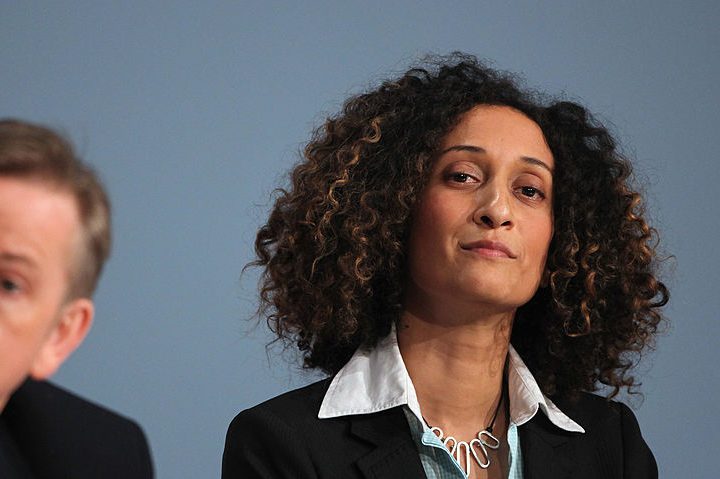We won’t know for some time what the outcome of the claim that a London school has broken the law by refusing to allow ritual prayer on its premises will be. But whatever the result, the case neatly exposes the problems of the rights culture we now live in.
The school is Katharine Birbalsingh’s Michaela School in Brent, an non-religious establishment where roughly half the intake is Muslim. Until recently Muslim pupils engaged in a daily prayer ritual. But after this created disorder, unpleasantness and some intimidation of teachers, the governors introduced a blanket ban on all ritual prayer, apparently with the result that calm and order were quickly restored.
In some areas we must be prepared to tell the rights industry that it can’t have things all its own way
This did not satisfy one parent, however. Her daughter has now sought a judicial review, claiming that the ban is discriminatory and infringes her human right to practise her religion. It would be wrong to speculate here on who is legally right: but in the present law the claim is certainly plausible. Nevertheless, there are a number of good reasons to suggest that a claim of this sort should not be allowed to get anywhere near the administrative court in the first place.
First, there is a worrying practical threat to the autonomy of head teachers and governors. Michaela has set itself up as specifically secular. This was done for the very good reason that if you want to unite a pupil cohort from various faiths in a city where religious tensions are always bubbling below the surface, the best way to do it is to demand that differences in creed be left at the school gate. The possibility of legal challenges like this based on discrimination law quite simply stymies efforts of this sort, and needs to be regarded with enormous suspicion. What is desperately needed in most schools is acceptance by the state that, in the day-to-day running of the school, the headteacher’s word is law. It cannot be good for discipline for a pupil to be able, even potentially, to say to a teacher who tells them not to behave in a particular way that they will get their parents to bring in the lawyers.
Secondly, there is a question of proportion. The decision whether a group of schoolchildren should be allowed to take over part of a particular school’s premises at various times for prayers is, one might have thought, actually fairly trivial in the scheme of things. That it should be even capable of being battled out in the High Court between expensive silks from high profile chambers (at least one, and probably both, on the taxpayer’s dime) would seem to most people, though perhaps not to a human rights lawyer, to amount to the use of an enormous sledgehammer to crack a rather small nut.
Thirdly, the episode tells us a good deal about the way rights culture has ballooned in the last few decades. Note one thing: no-one says Michaela is deliberately targeting Muslims. It clearly wouldn’t dream of doing so. The argument instead is that, by barring all prayer rituals, from whatever faith, it disproportionately affects Muslims, and so the school has to show a clear justification.
Now, to a lawyer this difference is trivial. It has been seen as obvious for many years that so-called ‘indirect discrimination’ of this sort must be suppressed. But is this so clear? There is a difference between deliberately disadvantaging a particular group and incidentally doing so. It’s perfectly plausible to forbid the former but say that in the latter case the group can be told that if our way of doing things acts to its detriment then it is simply its bad luck.
So too with what looks like an ECHR claim that Michaela is infringing Muslim pupils’ rights to practise their religion. By all means prevent the state from banning a religion outright in homes, public thoroughfares or places of worship. That, one suspects, is what the ECHR drafters had in mind in 1950. But the claim against Michaela is quite different: it is a demand to be able, as a matter of law, to practise collective worship on someone else’s property and against the wishes of its owner. True, a human rights lawyer will tell you (rightly) that claims like this are is entirely in line with the Strasbourg court’s subsequent interpretation of the ECHR since 1950. But that doesn’t necessarily make it right, or justify the intrusive use of state power involved. Again, there is a very respectable case for thinking the state’s right to enforce freedom of religion should be somewhat more limited.
The awkward fact for the human rights lawyers is that Kathering Birbalsingh’s defence of her practice actually rings very true, and strikes an accord with many English people’s views. ‘Multiculturalism,’ she said, ‘can only succeed when we understand that every group must all make sacrifices for the sake of the whole. We allow our children freedoms of all sorts, as long as those freedoms do not threaten the happiness and success of the whole school community.’
Quite. One could then add, if one wished to be mischievous, that if achieving this requires the wholesale scaling back of several decades of discrimination and human rights law, so be it. There should be nothing untouchable about such things. In some areas at least we must be prepared to tell the rights industry that it can’t have things all its own way.






Comments